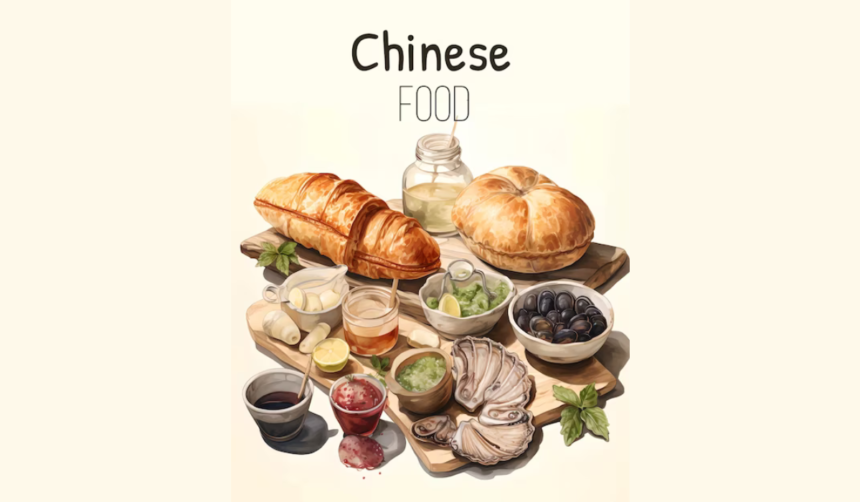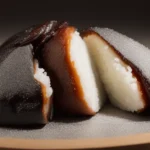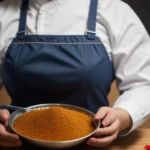French Cuisine: A Gastronomic Delight for Food Lovers Everywhere
French cuisine is renowned worldwide for its exquisite flavors, rich history, and meticulous attention to detail. From classic dishes like coq au vin and boeuf bourguignon to delicate pastries like macarons and croissants, French cuisine has captivated the hearts and palates of food lovers everywhere. In this article, we will explore the essence of French cuisine, its roots, popular dishes, and why it continues to hold a special place in the hearts of food enthusiasts around the world.
1. A Brief History of French Cuisine
French cuisine has a long and storied history that dates back to the Middle Ages. Influenced by various invasions, trade routes, and changes in social structures, French cuisine has evolved into a rich tapestry of flavors and techniques. One of the major influencers of French cuisine was Catherine de Medici, who brought Italian culinary traditions to the French court in the 16th century. This fusion of French and Italian cuisines laid the foundation for what we now know as modern French cuisine.
2. The Influence of Geography on French Cuisine
France’s diverse regions play a significant role in shaping the country’s culinary landscape. Each region boasts its own unique specialties, ingredients, and culinary traditions. For example, the coastal regions of Normandy and Brittany are known for their seafood dishes, while the Alsace region near the German border is famous for its hearty dishes like choucroute garnie. The south of France, including Provence and the Cote d’Azur, is known for its Mediterranean flavors and use of fresh herbs and olive oil.
3. The Importance of Fresh Ingredients
One of the hallmarks of French cuisine is the emphasis on using fresh, high-quality ingredients. French chefs take great pride in sourcing the best produce, meats, and dairy products to create their culinary masterpieces. The French devotion to sourcing the finest ingredients is evident in their vibrant farmer’s markets, where locals and chefs alike gather to select the freshest fruits, vegetables, meats, and cheeses.
4. The Art of French Cooking Techniques
French cuisine is also renowned for its precise and intricate cooking techniques. From sautéing and braising to poaching and flambéing, French chefs employ a wide range of methods to create dishes that are both delicious and visually stunning. One of the most famous French cooking techniques is “sous vide,” a method of cooking vacuum-sealed ingredients in a water bath at a precise temperature to ensure even cooking and maximum flavor retention.
5. Regional Specialties of French Cuisine
Each region of France boasts its own unique culinary specialties that reflect the local ingredients and traditions. In Burgundy, famous for its wines, you’ll find classic dishes like Coq au Vin, a slow-cooked chicken stew with red wine, mushrooms, and onions. In Provence, you’ll find Ratatouille, a vegetable stew made with eggplant, zucchini, peppers, and tomatoes, seasoned with herbs de Provence. And in the coastal regions, you’ll find Bouillabaisse, a seafood stew made with a variety of fish, shellfish, and aromatic herbs.
6. The Role of Wine in French Cuisine
No discussion of French cuisine would be complete without mentioning the country’s vibrant wine culture. Wine plays a central role in French gastronomy, both as an accompaniment to meals and as an ingredient in many classic dishes. French wines are known for their diversity and quality, with regions like Bordeaux, Burgundy, and Champagne producing some of the world’s most sought-after wines. Whether you’re enjoying a glass of red with a steak frites or a glass of champagne with oysters, French cuisine is always best enjoyed with a good bottle of wine.
7. The Rise of Haute Cuisine
Haute cuisine, or high cuisine, is a style of French cooking that emphasizes elaborate dishes, precise techniques, and luxurious ingredients. Developed in the 19th century by chefs like Auguste Escoffier and Georges Auguste Escoffier, haute cuisine has become synonymous with French gastronomy. Some of the most famous dishes of haute cuisine include Foie Gras, a rich duck liver pâté, and Sole Meunière, a delicate fish dish cooked in butter, lemon, and parsley. Haute cuisine is a true celebration of the artistry and sophistication of French cooking.
8. The Joy of French Pastries
French pastries are a true delight for food lovers everywhere. From buttery croissants to delicate macarons, French pastries are as visually stunning as they are delicious. The French are famous for their mastery of pastry techniques, from laminating dough to piping delicate decorations. Some of the most famous French pastries include the éclair, a cream-filled choux pastry, and the tarte tatin, an upside-down apple tart caramelized in butter and sugar. French pastries are a true testament to the country’s love of baking and artistry.
9. Dining Etiquette in France
Dining in France is a ritual that is taken very seriously. French dining etiquette is characterized by its formalities, from the ordering of courses to the use of utensils. In France, it is customary to start your meal with a small appetizer, followed by the main course, cheese course, and dessert. It is also common to take your time savoring each course and engaging in lively conversation with your dining companions. French dining is a social event that is meant to be enjoyed slowly and with great attention to detail.
10. The Rise of Bistros and Brasseries
While haute cuisine remains a central pillar of French gastronomy, the rise of bistros and brasseries has brought a more casual and approachable dining experience to the French culinary scene. Bistros are cozy neighborhood restaurants that serve simple, hearty fare like steak frites, pot-au-feu, and salade Niçoise. Brasseries, on the other hand, are larger and more upscale restaurants that serve a wider range of dishes, often featuring seafood and shellfish. Both bistros and brasseries offer a welcoming and relaxed atmosphere where diners can enjoy classic French dishes in a casual setting.
11. The Global Influence of French Cuisine
French cuisine has had a profound influence on global gastronomy, with French culinary techniques and dishes being celebrated and adapted in countries around the world. French chefs have also played a significant role in shaping the culinary landscape of other countries, with French-trained chefs like Julia Child and Jacques Pépin becoming household names in the United States. French cuisine has also inspired chefs in countries like Japan, where French culinary techniques have been combined with traditional Japanese ingredients to create a unique fusion of flavors.
12. The Future of French Cuisine
While French cuisine has a rich and storied history, it continues to evolve and adapt to changing tastes and trends. Modern French chefs are exploring new techniques, ingredients, and flavor combinations to create dishes that are both innovative and delicious. The farm-to-table movement has also taken hold in France, with chefs emphasizing the importance of sourcing local, sustainable ingredients to create dishes that are not only delicious but also environmentally conscious. The future of French cuisine looks bright, with chefs continuing to push the boundaries of traditional cooking to create dishes that are both timeless and modern.
13. French Cuisine: A Culinary Journey
For food lovers everywhere, French cuisine offers a culinary journey like no other. From the bustling markets of Paris to the vineyards of Bordeaux, the flavors and traditions of French cuisine are an endless source of inspiration and delight. Whether you’re indulging in a simple baguette with cheese or savoring a multi-course meal at a Michelin-starred restaurant, French cuisine has something for everyone. The next time you find yourself craving a gastronomic adventure, look no further than the exquisite flavors and impeccable techniques of French cuisine.
14. Embracing the Joie de Vivre of French Cuisine
At its heart, French cuisine is a celebration of life and all its pleasures. Known for its emphasis on quality, flavor, and tradition, French cuisine embodies the joie de vivre, or joy of living, that is central to the French way of life. Whether you’re enjoying a leisurely meal with friends and family or savoring a glass of wine with a view of the Eiffel Tower, French cuisine invites you to slow down, savor the moment, and fully embrace the pleasures of the table. In a world that is constantly changing and evolving, French cuisine remains a timeless and treasured culinary tradition that brings people together in a shared love of food and community.
15. Conclusion
French cuisine is a gastronomic delight that has captured the hearts and palates of food lovers everywhere. From its rich history and diverse regions to its precise cooking techniques and vibrant flavors, French cuisine is a true celebration of the artistry and sophistication of cooking. Whether you’re indulging in a classic dish like bouillabaisse or savoring a delicate pastry like a tarte Tatin, French cuisine offers a culinary experience like no other. So the next time you find yourself craving a taste of the extraordinary, immerse yourself in the world of French cuisine and savor every moment of the journey. À votre santé!
















